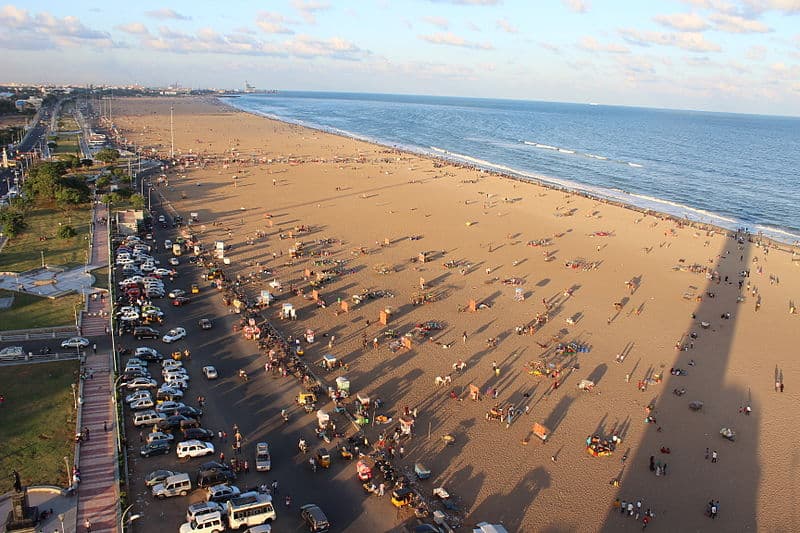Drones on vigil in Marina after rising crimes
To stem crime happening on the Marina in Chennai, drones are to fly across the beach from Light House to MGR Memorial for three hours in the mornings and evenings. Weekends will see the increased duration of surveillance due to more crowds frequenting the area.
Apart from this, the police will also employ facial recognition software (FRS) to inspect people sleeping on the beach. They have received intelligence that history-sheeters have been hiding on the beach and have committed robberies in the area.
With three robbery cases in the last month on the beach, especially against the elderly and women, security has been tightened. Eight police teams from Anna Square and the Marina police stations will be patrolling key areas on the shore in shifts.
The drone and FRS technologies will also be used to stop people from entering the sea. This comes in light of the drowning of an engineering student on July 2. On July 7, some individuals who tried to get deep into the waters were spotted by the drones and stopped by police teams.
Source: The Times of India | DT Next

Read more: Crime in Chennai: How to guard yourself from snatchers on the road
Awareness drives, then fines for non-segregation of waste in Chennai
Before administering a fine of Rs 100 for not segregating the waste at the domestic level, the Greater Chennai Corporation plans on creating awareness about the process. Since there will be spot collection of fines, the civic body wants to provide time for people to become aware of the process of segregating waste.
The Domestic Breeding Checkers have been asked to collect the names, phone numbers and door numbers of residents, along with instructing them to segregate the waste before giving it to the garbage collecting vehicle. Currently, the conservancy workers segregate the unsegregated waste given to them by the residents.
Source: The New Indian Express
Chennai Police raises awareness on fake EB scam
Cyber scams of sending text messages to people about electricity bill payments have been on the rise in the city. The SMS would read that the power supply would be disconnected as the electricity bill for the previous month has not been updated. It would direct the people to contact the Electricity Department or ask them to reach out to the number which sent the SMS via WhatsApp.
The scamsters then take the bank account details of the people who respond to such messages and rob them of their money. Chennai Police has stepped in to raise awareness about this scam. TANGEDCO does not call or text regarding bill payments, confirmed the police, stating that people must not reply to such messages.
Source: The Hindu
Read more: Chennai waste pickers stare at uncertain future in the face of source segregation
Chennai police crackdown on high decibel horns
As part of the ‘Anti-Honking’ initiative of the police, high decibel horns from 281 vehicles were taken away, and 572 people were booked for attaching such horns to their vehicles. The ‘Anti-Honking’ awareness campaign was held from June 27 to July 3 in areas where several schools and colleges were located.
Chennai recorded an average noise level of 85 dB, while the state levels mandate 65 decibels in the morning and 50 decibels at night. However, WHO recommends 55 decibels in the morning and 40 decibels at night to be the noise limits.
Source: DT Next | The Times of India
Rise in fever cases among school children after offline classes
Since the beginning of physical classes in schools in June, there has been an increase in fever cases among children. Although the medical fraternity says that these are cases of seasonal change, parents are worried, especially with COVID cases rising in the city.
Experts have recommended fever camps to be set up on the campuses along with spaced-out break timings to reduce contact between the children. To avoid the risk of school children catching the virus, the government has asked schools to make frequent temperature checks and wearing masks mandatory, apart from providing well-ventilated classrooms and maintaining physical distancing inside the campuses.
Source: The New Indian Express | The Hindu
[Compiled by Padmaja Jayaraman]